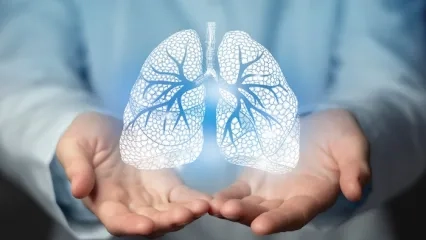Alo Yeditepe
Alo Yeditepe
What is Good for Cough? How to Cure Cough?
What is Cough?
Cough is a defense mechanism of the respiratory system and is a natural response to remove foreign substances or irritants from the body, usually found in the throat or airways. With cough, mucus, dust, germs or irritants in the respiratory tract are cleared, thus protecting the health of the respiratory tract.
What are the Types of Cough?
Cough can be seen in different forms such as dry cough, phlegmy cough and chronic cough. The type of cough can also provide information about the underlying problem.
• Dry Cough
There is no mucus or phlegm in dry cough, which is mostly caused by irritants or infections in the respiratory tract. Patients complain about the feeling of irritation in the throat. Conditions such as flu, cold, throat irritation, asthma or smoking can cause dry cough.
• Phlegmy Cough
Phlegmy cough occurs in cases where mucus increases in the respiratory tract, such as colds and flu. The respiratory tract is cleared through mucus. A cold, bronchitis, pneumonia, or other respiratory infections can cause a phlegmy cough.
• Chronic Cough
It generally refers to a cough that continues for more than three weeks. There are many potential causes of chronic cough, including asthma, chronic obstructive pulmonary disease (COPD), gastroesophageal reflux disease (GERD), allergies, medication side effects, or smoking. However, since chronic cough may also be a symptom of a different underlying health problem, it is extremely important to consult a physician without wasting time.
• Night Cough
It can be defined as a situation where the cough gets worse especially at night. The main reasons why cough increases at night include asthma, allergies or GERD.
• Involuntary Cough (Tic) Syndrome
Involuntary cough syndrome is a rare condition that gives the person sudden cough attacks that he cannot control on his own. These seizures can sometimes be triggered by stress, anxiety or other psychological factors.
• Allergic Cough
Allergic cough is a reaction that occurs when a person is exposed to allergens. For example, an allergic cough may develop when exposed to allergens such as pollens, house dust mites, animal dander, or mold spores.
Because types of cough may differ depending on underlying causes and symptoms, it is important to determine the underlying cause and choose appropriate treatment or management strategies. For this reason, it is necessary to consult a physician without wasting time, especially in cases of long-lasting cough.
What is Good for Cough?
Since the treatment of cough will vary depending on the detection and type of the underlying cause of the cough, it is necessary to consult a healthcare institution. However, the following methods may be beneficial to relieve cough.
• Consuming Plenty of Fluids
Consuming especially warm water, herbal teas, and freshly squeezed fruit juice can help relieve cough by moisturizing the throat.
• Humidifying the Air
Dry air can cause increased cough. Therefore, increasing the humidity level of indoor spaces with a steam machine or humidifier devices can relieve cough.
• Honey, Ginger, Lemon
A teaspoon of honey can soothe the cough. Honey has anti-inflammatory properties and soothing effects on the throat. Ginger root may help relieve cough. You can consume ginger tea or fresh ginger. Vitamin C contained in lemon can support the immune system. Lemon juice mixed with hot water can relieve cough.
• Avoid Cold Drinks
Cold drinks can increase throat irritation. Therefore, avoid cold drinks if possible.
• Peppermint or Eucalyptus Oil
Inhaling peppermint or eucalyptus oil vapor can relieve cough. For this, adding a few drops of oil to a bowl of hot water and inhaling it can be soothing.
• Rest
While treatment for the underlying cause of your cough continues, resting to help your body heal will also help you recover.
Cough may be a symptom of an underlying health problem, so it is extremely important to consult a physician if your cough continues for a long time.
What Causes Phlegmy Cough?
A productive cough is a natural defense mechanism that helps clear mucus or phlegm that often accumulates in the respiratory tract. This type of cough serves an important function in many situations because it helps remove mucus, dust, germs, or other irritants from the airways. A productive cough can help protect your body against infections and respiratory problems by clearing the airways.
Is a Cough with Phlegm Dangerous?
A cough with phlegm can sometimes be a symptom of a health problem. Cough with phlegm can be especially important in the following situations:
• Chronicity: If a cough with phlegm persists for a long time (for example, more than three weeks), it may be a sign of an underlying health problem. Chronic phlegmy cough may be a sign of asthma, chronic obstructive pulmonary disease (COPD), bronchitis, pneumonia, or other breathing problems.
• Bloody sputum: If bloody sputum occurs during a productive cough, this may be a serious condition and it is important to consult a healthcare professional immediately. Bloody sputum may indicate a problem with the airways or lungs.
• Other Symptoms: If your cough with phlegm is accompanied by other symptoms such as fever, shortness of breath, rapid breathing, wheezing, or severe fatigue, this condition requires further attention.
• Smoking History: People with a history of smoking should be more careful about phlegmy cough, respiratory diseases or lung problems.
Cough may be something that will go away on its own, or it may be a sign of a serious health problem. A productive cough should be evaluated by a doctor, especially if it lasts long or is accompanied by other symptoms. It is important to diagnose the underlying cause and determine appropriate treatment or management strategies.
What Causes Dry Cough?
A dry cough is a type of cough that does not produce phlegm or mucus and is often characterized by a feeling of irritation in the throat. Although dry cough can occur for many different reasons, the underlying cause determines the importance of the cough. Sometimes a dry cough can be a minor annoyance and is a symptom of short-term throat irritation or a cold. However, in some cases, a dry cough may indicate a more serious health problem.
Is Dry Cough Dangerous?
The following situations can make dry cough much more serious. A dry cough may become more significant, especially in the following situations:
• Chronicity: If a dry cough persists for a long time (for example, more than three weeks), it may be a sign of an underlying health problem. Chronic dry cough can be caused by asthma, chronic obstructive pulmonary disease (COPD), allergic reactions, gastroesophageal reflux disease (GERD), or smoking.
• Other Symptoms: If your dry cough is accompanied by other symptoms such as shortness of breath, rapid breathing, chest pain, or severe fatigue, this condition requires further attention.
• Smoking History: People with a history of smoking may be more concerned about dry cough, respiratory illnesses, or lung problems.
Dry cough can occur in many conditions, both temporary and chronic, and may be due to many reasons. If your dry cough persists for a long time or has severe symptoms, it is important to seek help from a doctor. It is important to diagnose the underlying cause and determine appropriate treatment or management strategies. A dry cough may be just a symptom, or sometimes it may be a sign of a more serious health problem.
What is Good for Dry Cough?
To relieve dry cough; Consuming plenty of fluids such as warm water, herbal or fruit teas, freshly squeezed fruit juice, moisturizing the throat by using a steam machine or water steam if possible, throat lozenges and rest to relieve throat irritation may help.
Remember that a dry cough can be a disorder that can go away on its own, or it can be a symptom of a serious health problem. If your dry cough persists for a long time or develops severe symptoms, you should contact a healthcare professional. Your doctor will evaluate the underlying cause of your cough and recommend appropriate treatment.
What is Allergic Cough and Is it Different from Other Types of Cough?
Yes, allergic cough is a different type of cough from other types of cough and is associated with allergic reactions. Allergic cough usually occurs in response to allergens (substances that cause allergic reactions) to which a person is exposed. These allergens may be pollen, dust mites, animal dander, mold spores or other allergens.
What are the Symptoms of Allergic Cough?
Allergic cough usually has symptoms that distinguish it from other types of cough and can be especially severe during periods of exposure to allergens. In treatment, it is extremely important to identify the allergens underlying the cough and limit exposure to allergens.
It is possible to list the symptoms of allergic cough as follows:
• Dry and Involuntary Cough
Allergic cough may include a dry cough without sputum or mucus production. Cough is usually involuntary and the person cannot control it.
• Itchy and Watering in the Eyes
Allergic reactions often affect the eyes, which can cause itching and watering.
• Runny Nose and Congestion
Runny nose and congestion can be symptoms of allergic cough when you are exposed to allergens.
• Sneezing
Frequent sneezing may occur as a result of exposure to allergens.
Allergic cough may occur especially when you are exposed to seasonal allergens (for example, pollens) or indoor allergens (for example, house dust mites). This type of cough is the result of allergic reactions to allergens and is often accompanied by other allergic symptoms such as allergic rhinitis (straw rhinitis) or allergic conjunctivitis.
Allergy medicines can use to allaviate the symptoms of cough. It is important that to connect a healthcare Professional, if allergic cough symptoms gives frequently disorder and becomes serious . Allergic cough should cure due to determined its underlying cause with creating a new treatment plan.
This content was prepared by Yeditepe University Hospitals Medical Editorial Board.
”
See Also
- How to Cleanse Your Lungs?
- Is Breathing Air Dangerous in Fires?
- What is Electronic Cigarette Disease (EVALI)? EVALI Symptoms and Treatment
- What is COPD? Symptoms and Treatment of COPD
- Long Journeys Increase the Risk of Embolism!
- What Asthma and COPD Patients Should Pay Attention to When Using Air Conditioning!
- What is Allergy? What are the Symptoms of Allergy?
- What is Desert Dust? Harms of Desert Dust
- What is Tuberculosis (TB)? Symptoms and Treatment
- Circadian Rhythm Disorder
- Lung Cancer Screening Age
- Lung Cancer Symptoms and Treatment
- 10 Ways to Have a Sound Sleep in the Heat
- What Should Asthma Patients Be Cautious About?
- Does Poor Quality Sleep Increase The Risk of Asthma?
- What is Allergy? What are Allergy Symptoms?
- What Causes Insomnia, Diagnosis and Treatment
- 9 Common Misconceptions About COPD
- Causes, Symptoms, and Treatment of Asthma
- COPD Makes You Age Early
- Allergy and Asthma During Pregnancy
- It Is Aimed to Eliminate Tuberculosis Worldwide By 2030
- Pollen is Now Seen Outside of Seasonal Changes
- Do Dental Caries Increase the Risk of Pneumonia?
- Lung Patients Should Not Stop Their Medications
- Smoking Rates Under the Age of 15 Are Increasing
- Inhaling Electronic Cigarettes for a Few Minutes Causes Damage to Vein Wall
- 4 Significant Preliminary Symptoms of Lung Cancer
- People Who Smoke More Than 25 Cigarettes a Day Have a 50-fold Increased Risk of Lung Cancer
- How Does Acid Rain Affect Human Health?
- Can Back Pain Be A Sign of Lung Cancer?
- Nine Out of Ten COPD Patients Do Not Know They Are Sick
- The Slowing Traffic in Istanbul Increases the Risk of Cancer!
- The American Cancer Society Has Announced; The Age of Screening For Lung Cancer Has Decreased
- Hidden Lung Cancer Cases Revealed in Tomographs Taken Due to Coronavirus
- Quitting Smoking Even After Diagnosing Lung Cancer Effects Lifespan
- Electronic Cigarettes Can Cause Heart Attacks!
- Pollen Allergy Has No Season
- Beware of Little-Known Risks of Smoking!
- Obesity is Both a Cause and Consequence of Sleep Apnea
- Asthma and COPD Attack Season Begins
- Lung Cancer
- Snoring and Its Treatment
- Does the Pneumonia Vaccine Protect Against the Coronavirus?
- In Case You Are Unable To Sleep Even If You Are Tired, Your Circadian Rhythm May Be Disrupted
- Using Antipyretics Uncontrolled Can Hide Pneumonia Symptoms
Alo Yeditepe




